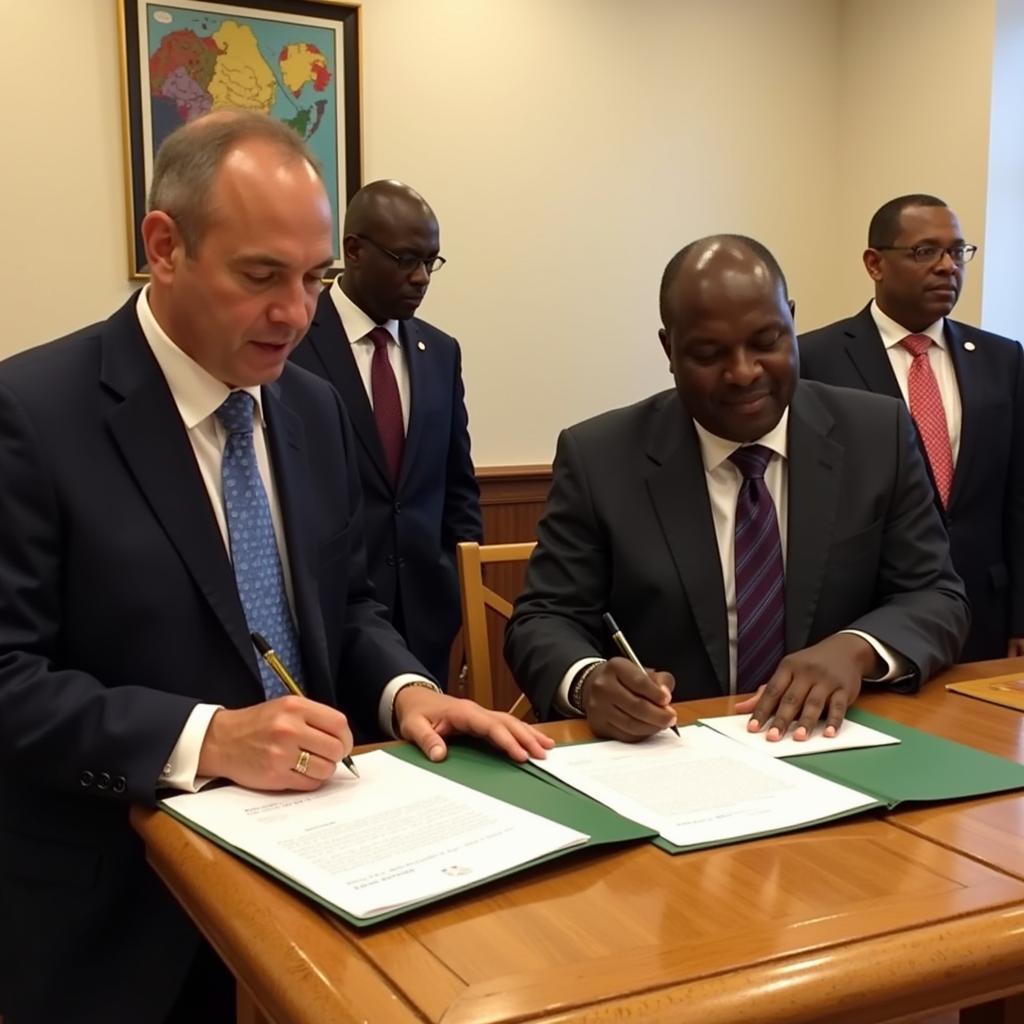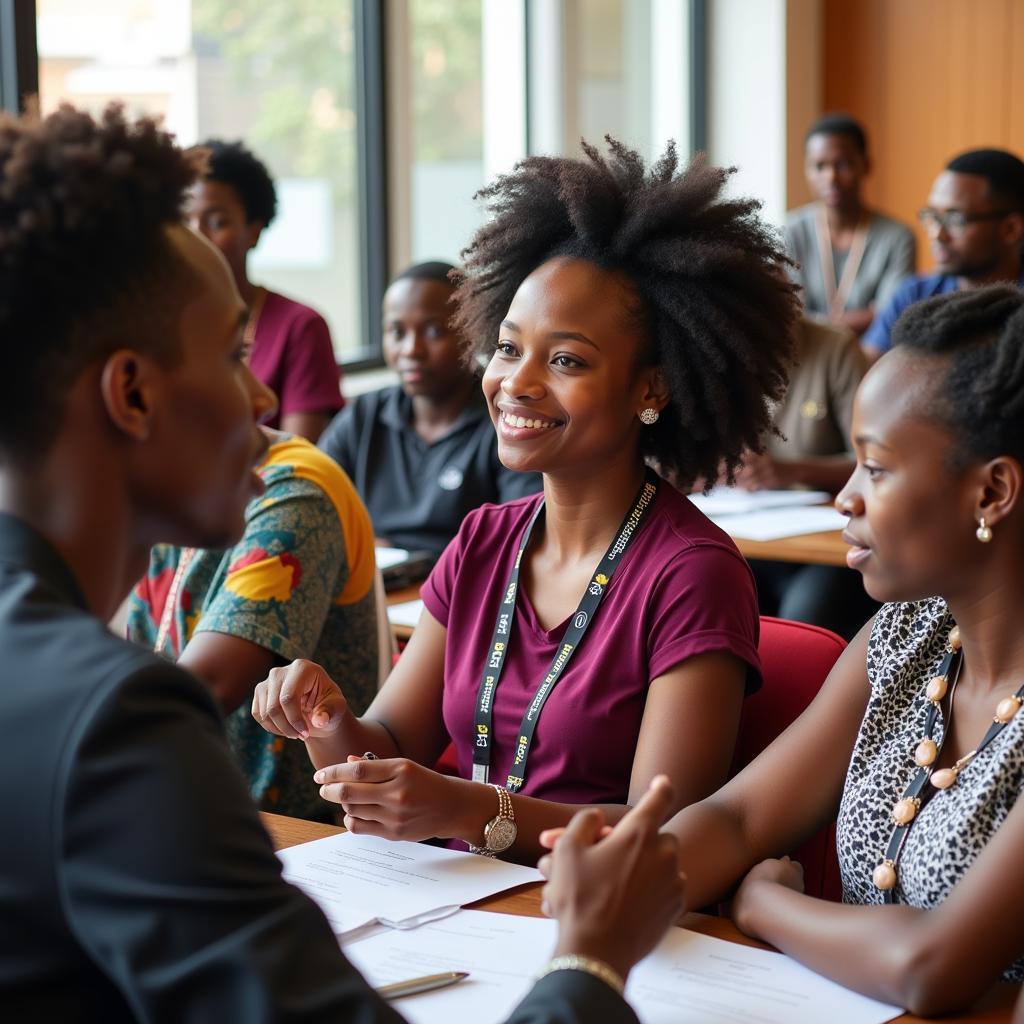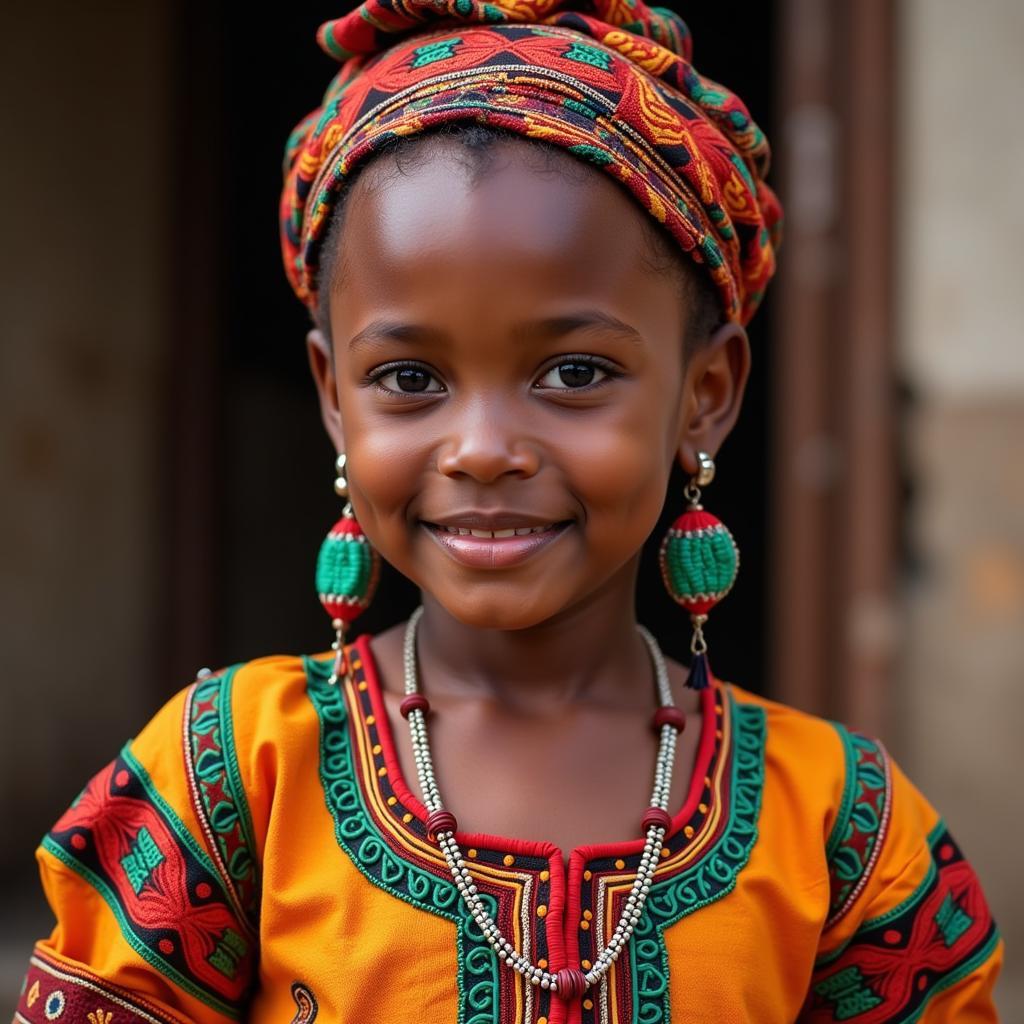33rd African Union Summit 2020: A Pivotal Year for Africa’s Agenda
The 33rd African Union (AU) Summit, held in Addis Ababa, Ethiopia, in February 2020, marked a significant moment for the continent. As leaders from 55 member states convened, the summit served as a platform to address pressing issues, strategize for the future, and foster unity among African nations.
Silencing the Guns: A Priority for Peace and Security
Under the theme “Silencing the Guns: Creating Conducive Conditions for Africa’s Development,” the summit placed a strong emphasis on achieving peace and security across the continent. This theme highlighted the understanding that sustainable development could only be achieved in an environment of stability.
Discussions revolved around addressing the root causes of conflict, including poverty, inequality, and political instability. Member states reiterated their commitment to strengthening conflict prevention mechanisms, promoting dialogue and mediation, and combating terrorism and transnational organized crime.
Boosting Intra-African Trade: The AfCFTA Takes Center Stage
A key highlight of the summit was the operationalization of the African Continental Free Trade Area (AfCFTA) agreement. Having come into force in May 2019, the AfCFTA aims to create a single market for goods and services across Africa, boosting intra-African trade and economic growth.
 Signing Ceremony of the African Continental Free Trade Area Agreement
Signing Ceremony of the African Continental Free Trade Area Agreement
The summit saw discussions on the implementation roadmap for the AfCFTA, focusing on key areas such as tariff reductions, trade facilitation, and dispute settlement mechanisms. The agreement has the potential to unlock significant economic opportunities for Africa, creating jobs, attracting foreign investment, and enhancing the continent’s competitiveness on the global stage.
Addressing Climate Change: A Collective Responsibility
The summit also addressed the pressing issue of climate change, which poses a serious threat to Africa’s development. Recognizing the continent’s vulnerability to the impacts of climate change, leaders called for a unified approach to mitigate its effects and adapt to its consequences.
Discussions centered around promoting renewable energy, enhancing climate resilience in agriculture, and mobilizing climate finance. The summit emphasized the need for developed nations to fulfill their commitments under the Paris Agreement and provide financial and technical support to developing countries, including those in Africa, to combat climate change.
Investing in Human Capital: Empowering Youth and Women
Recognizing that people are Africa’s greatest asset, the summit underscored the importance of investing in human capital development, particularly in education, health, and skills development. There was a strong emphasis on empowering youth and women, recognizing their crucial role in driving the continent’s transformation.
 Youth Forum at the African Union Summit
Youth Forum at the African Union Summit
Discussions revolved around promoting quality education, expanding access to healthcare, and creating employment opportunities, particularly for young people. The summit also highlighted the importance of gender equality and women’s empowerment as key drivers of sustainable development.
Conclusion: Advancing Africa’s Agenda
The 33rd African Union Summit served as a testament to the commitment of African leaders to collectively address the continent’s challenges and harness its immense potential. The summit witnessed significant strides in advancing Africa’s agenda on peace and security, economic integration, climate change, and human capital development. While challenges remain, the summit provided renewed hope and a clear roadmap for Africa’s continued progress towards a brighter future.

